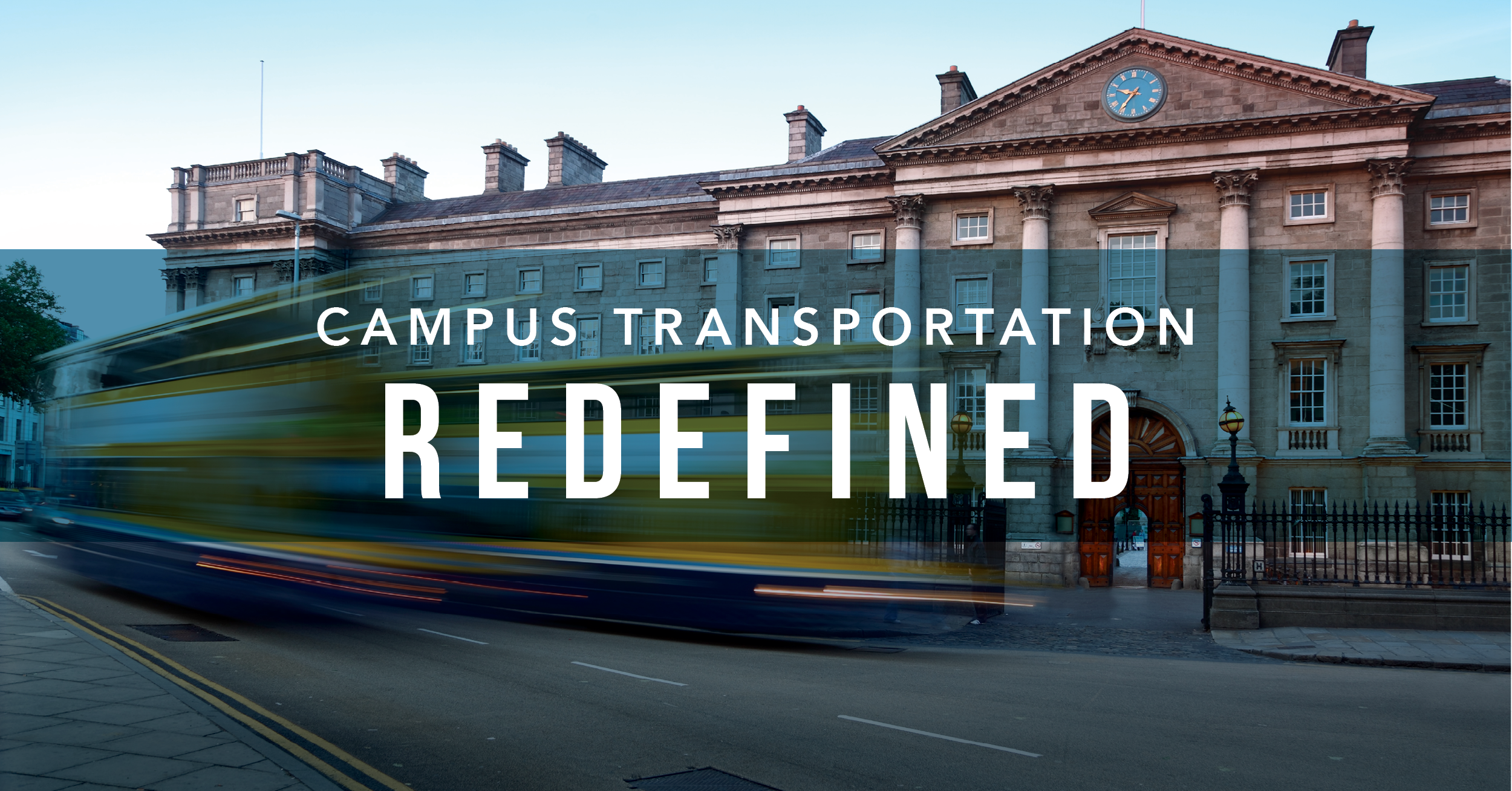
For close to two decades, TransLoc has worked with campus parking and transportation departments across the United States. In this time, we’ve had exposure to unique environments – in service setup, delivery, needs, and roles. We’ve also witnessed an evolution take shape; one that is observable at an industry-wide level. This evolution centers on creating and delivering mobility services based on consumer demand, not solely operating and managing individual mode supply.
Campus transportation services have morphed beyond traditional fixed route shuttles. As demand for transportation service grows (and some of our campus transit agencies rival the annual ridership numbers of small to mid-size transit agencies), and parking availability decreases, departments are left trying to balance the car-centric needs of today with the future needs of the institutions they serve. Given finite campus real estate, to expand, campus planners may need to identify opportunities to repurpose on-site parking. This centers campus parking and transportation departments as an important partner in campus planning efforts.
Campus transportation departments as stewards of sustainability
Top of mind for many campuses are sustainability and walkability scores. As a result, new modes of mobility are becoming the norm – and key to the future of campus environments and recruitment. These efforts, combined with increased emphasis on “greening” transportation fleets, enable campus transportation and parking departments to maintain a leadership role in decreasing congestion, improving campus flow, and promoting campus livability and sustainability.
Campus transportation is critical for campus safety and accessibility
In the past, campus transportation efforts often began as student-led initiatives to increase accessibility. Accessibility in terms of being able to get to places – to the campus, to class, to a job for everyone, regardless of ability. Safety is another critical component. From enabling late night safe ride services to playing a key role in an emergency response situation, campus transportation departments must ensure that students, faculty, and staff are safe on the campus environment.
Campus transportation is key to overall campus mobility management
One of the biggest roles that campus parking and transportation departments are taking charge of is overall campus mobility management, not just shuttles and parking. Campus transportation departments now oversee a portfolio of mobility options available to students and employees – carpooling, demand access transit, scooters, bike sharing. Managing all these modes is an enormous shift but presents new opportunities to ensure better access to the campus environment for all.
Campus transportation departments as data and technology hubs
As campus transportation departments become more dominant players in the functionality of campus environments, these departments are maximizing the use of technologies to enable capabilities at scale. This, matched with the proliferation and use of mobile technologies by students and employees, has put campus transportation and parking departments at the center of a campus digital ecosystem.
Parking, campus transportation services, carpool, event information, etc. create rich data sets about movement and flow around campus that can be used to better inform service planning decisions, improve responsiveness to campus transit needs, and optimize parking and transportation services. This data can provide insight into the health of campus operations.
Campus transportation as key to recruitment
Finally, campus parking and transportation departments contribute to recruitment and student experience efforts. Access to fixed route and on demand services like safe ride for after-hours transportation have become key differentiators when students and families consider higher education options.
From directly impacting how people travel around campus to being mission critical to the success and safety of a campus day to day, the role of campus parking and transportation has expanded beyond the traditional model. It’s important that campus environments, from executive leadership to advising boards, understand the importance of campus transportation departments and place a premium on their success.